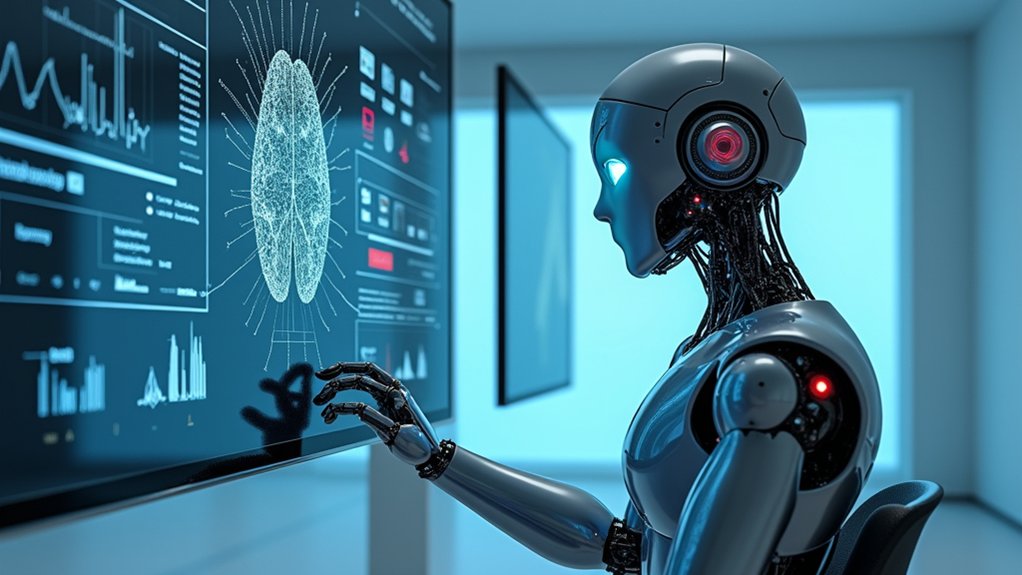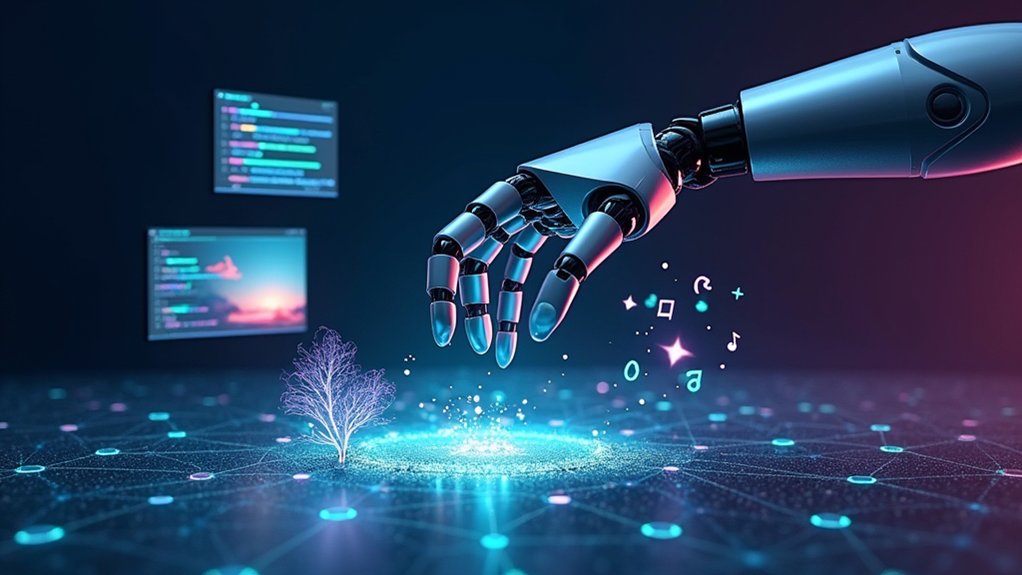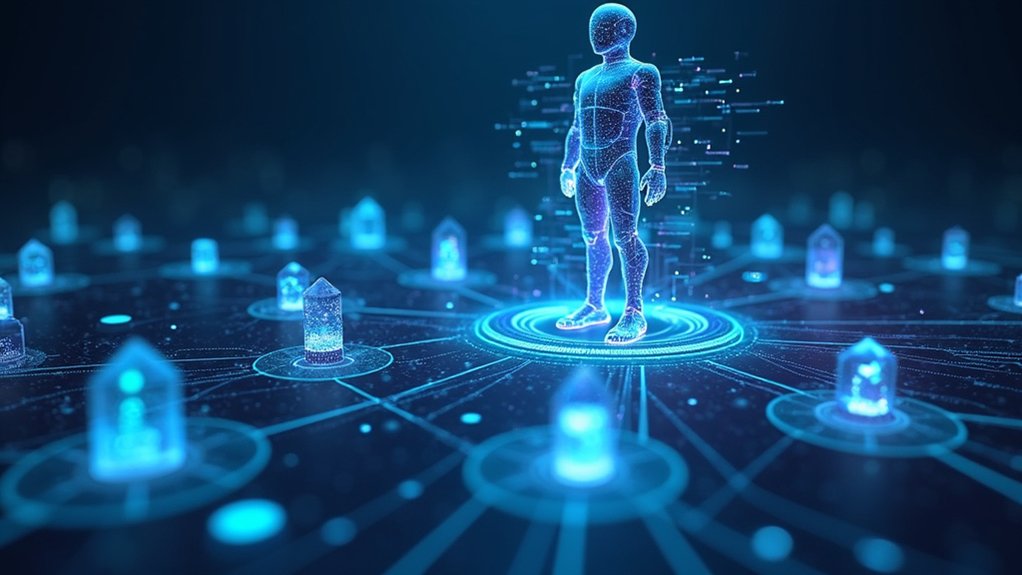There's no single "country of artificial intelligence" as AI development is a global competition. The United States currently leads, holding 59% of top AI researchers and eight of the world's top ten supercomputers. China ranks second with massive government investment. Other notable players include Canada, Israel, Japan, South Korea, and Germany—each with unique strengths in research, startups, or applications. The AI landscape continues to evolve as nations race for technological dominance.

As nations race to dominate the future of technology, artificial intelligence has become a key battleground for global influence and economic power. The United States currently leads the AI race, ranking first globally in development and implementation. It's home to 59% of top-tier AI researchers and hosts eight of the world's top ten supercomputers for AI research.
The global AI race has become the defining technological competition of our era, with America currently holding a commanding lead.
China follows as the second-leading country, with massive government investment in AI. It produces the most STEM graduates globally and filed 110,000 AI patent applications from 2015-2017, more than any other nation.
The UK ranks third overall in the Global AI Index, offering over 200 AI-related postgraduate courses and contributing £15.6 billion to its economy in 2020 through AI.
The global AI market is projected to reach $190.61 billion by 2025. The US and China dominate funding, accounting for over 90% of global AI investments. Other countries are increasing their commitments too. Japan aims to invest $940 million by 2025, while India has allocated $477 million to its national AI program. This global competition for AI leadership represents a new geography of AI reflecting international power dynamics beyond just corporate interests.
Different nations focus on various AI strengths. Canada pioneered a national AI strategy that excels in research and talent acquisition. Israel stands out in AI startups, raising $6.8 billion in 2020, leading globally on a per capita basis.
Japan ranks second in AI patent filings, particularly in robotics, while South Korea excels in AI patents related to electronic devices. Germany has positioned itself as a leader in integrating AI technologies into its strong industrial base, particularly in manufacturing and engineering sectors.
Nations are also developing different approaches to AI ethics and regulation. The EU introduced a detailed AI Act, while the US relies mostly on sector-specific guidelines. China implemented ethical guidelines for AI in 2021, and Canada created an Advisory Council on Artificial Intelligence.
The race extends to computing power too. China's Sunway TaihuLight ranks as the world's fourth-fastest supercomputer, Japan's Fugaku is optimized for AI tasks, and the EU plans to build world-class supercomputers through its EuroHPC initiative. With multimodal AI emerging as a transformative technology, countries are positioning their research initiatives to capitalize on systems that can process multiple types of data simultaneously.
As AI continues to transform industries worldwide, nations' investments today will shape their economic and technological futures.
Frequently Asked Questions
What Legal Framework Governs AI Development in This Country?
Legal frameworks governing AI development vary globally.
The EU has its extensive AI Act with risk-based categories.
The US lacks federal AI legislation but operates under an Executive Order and agency guidance.
China regulates AI through cybersecurity laws and specific measures for generative AI.
The UK employs a principles-based approach without specific AI laws, empowering existing regulators while maintaining a pro-innovation stance.
How Does the Education System Prepare Citizens for AI Integration?
The education system prepares citizens for AI integration through extensive curriculum updates. Schools have introduced AI courses at all levels, with 40% adding AI-related content since 2020.
Teacher training programs receive significant funding, though 65% of educators still need more AI training. The focus includes critical thinking, data literacy, and ethical AI use.
Most schools have AI-ready technology, with 55% adopting cloud-based AI platforms in classrooms.
What Ethical Guidelines Regulate AI Implementation Nationally?
National AI ethical guidelines typically focus on five key principles: human autonomy, harm prevention, fairness, transparency, and accountability.
Most countries implement these through a mix of voluntary codes, impact assessments for high-risk AI systems, and specialized regulatory bodies.
Enforcement includes auditing programs and penalties for violations.
Regulators face challenges keeping pace with rapid AI advancement while balancing innovation with appropriate safeguards across different jurisdictions.
How Accessible Is AI Technology to Small Businesses?
AI technology is increasingly accessible to small businesses. About 40% of small businesses are using generative AI tools in 2024.
Cloud-based services offer pay-as-you-go options that lower costs. User-friendly tools require less technical expertise.
However, challenges remain. 55% of businesses cite cost as a barrier, and 48% aren't sure which AI tools fit their needs.
Nearly half report employee skill gaps as obstacles.
What Privacy Protections Exist for Citizens Regarding AI Systems?
Citizens have several privacy protections regarding AI systems.
Laws like GDPR in Europe and CCPA in California give people rights to access, delete, and control their personal data.
Many states require companies to disclose when they're using AI.
People can opt out of AI profiling in some places.
Laws also mandate human review of automated decisions and prohibit deceptive AI practices that manipulate users.









